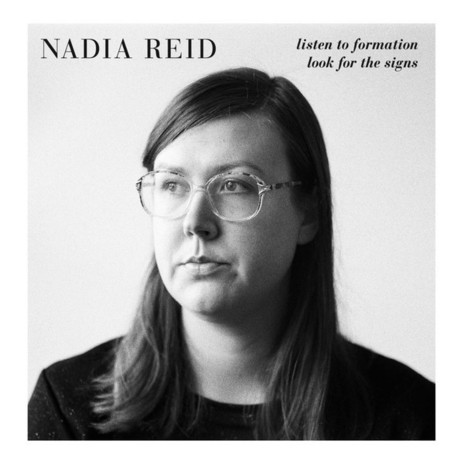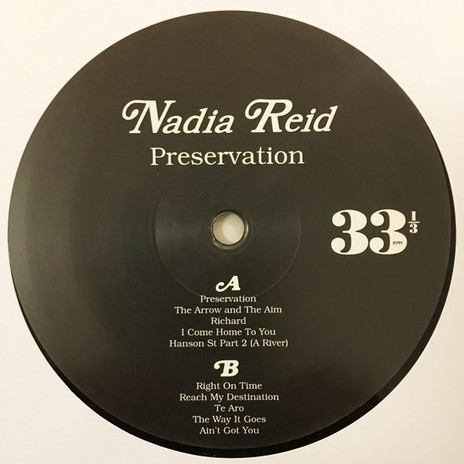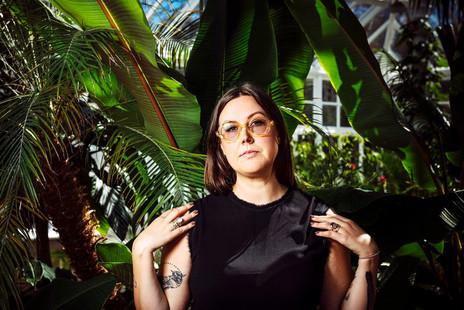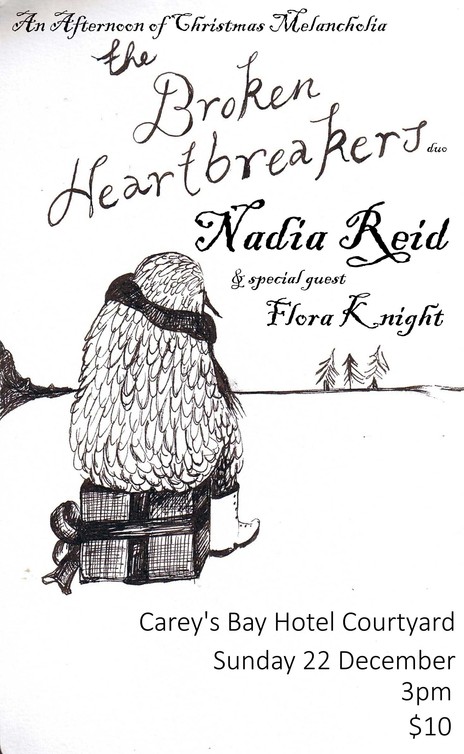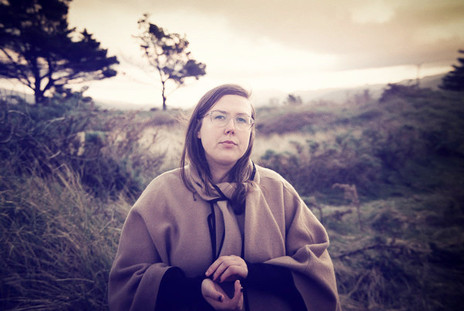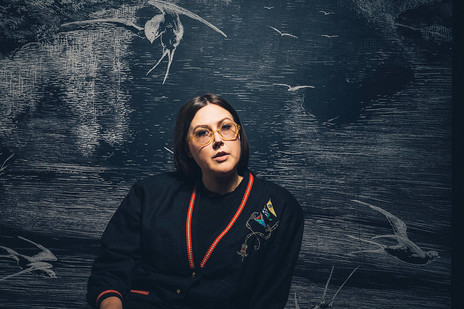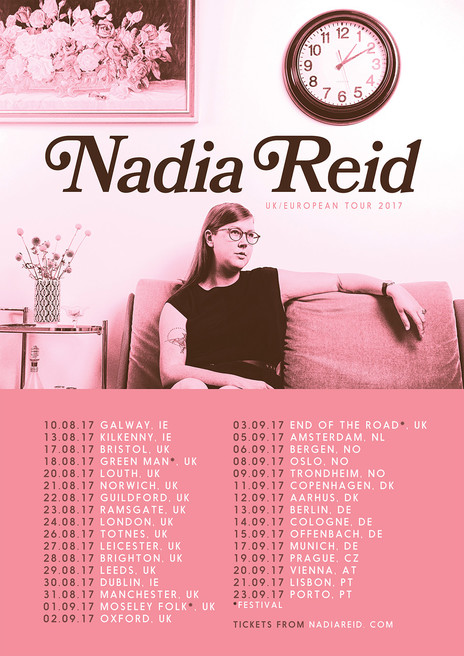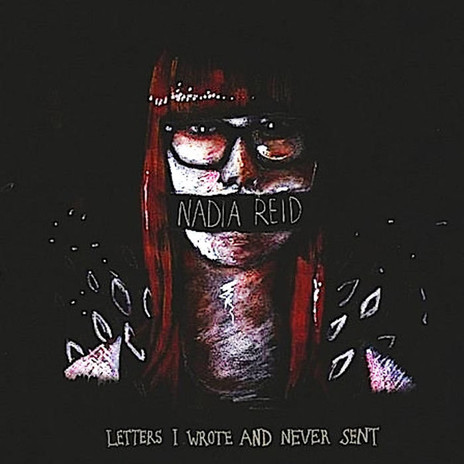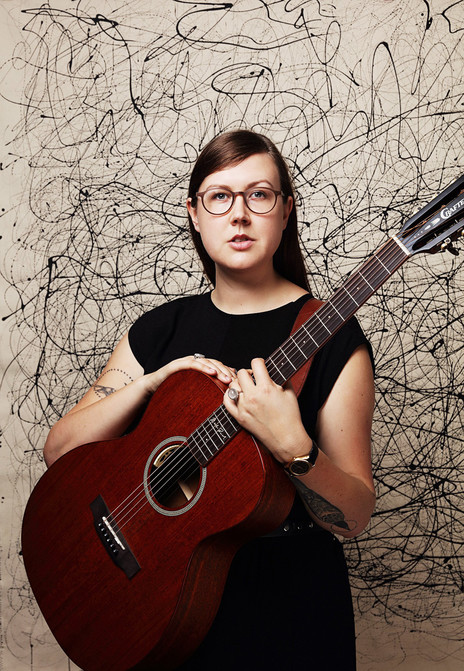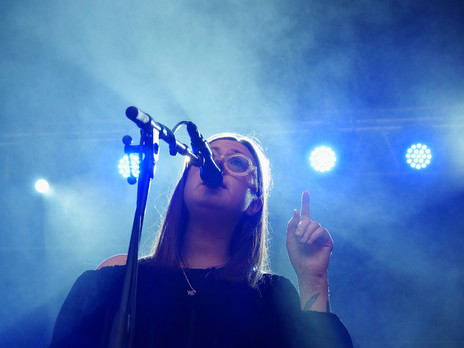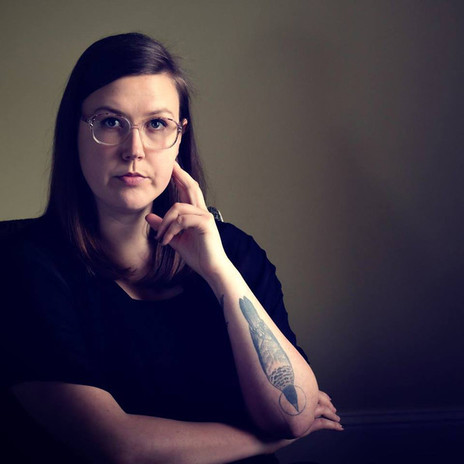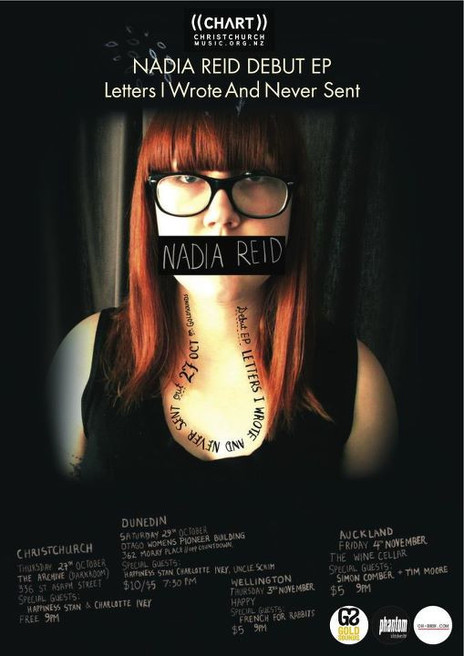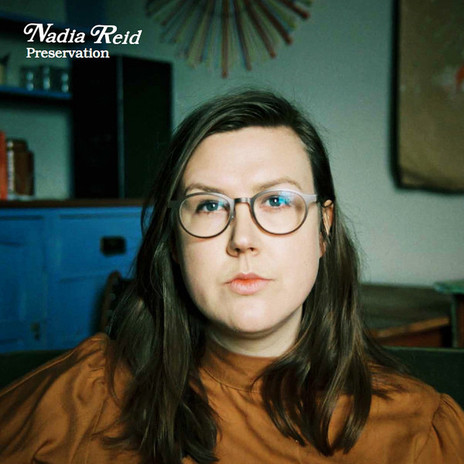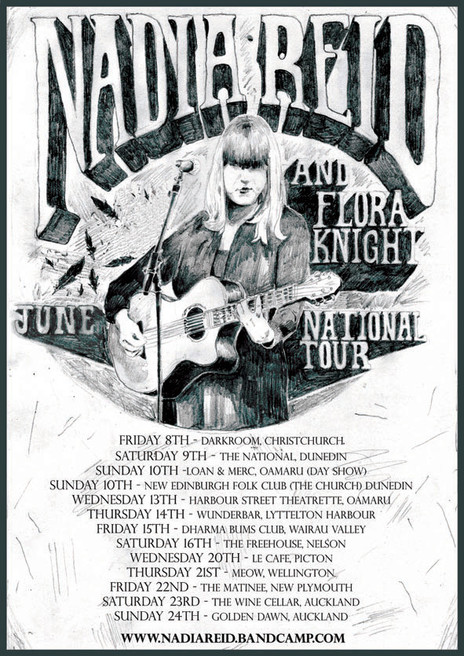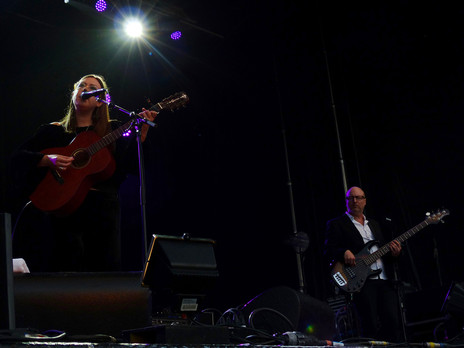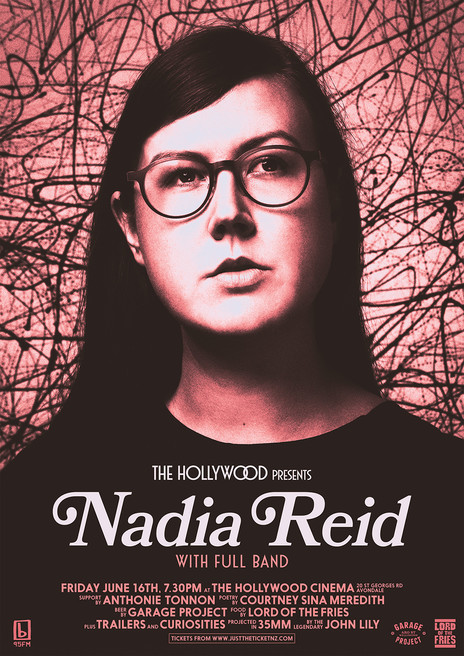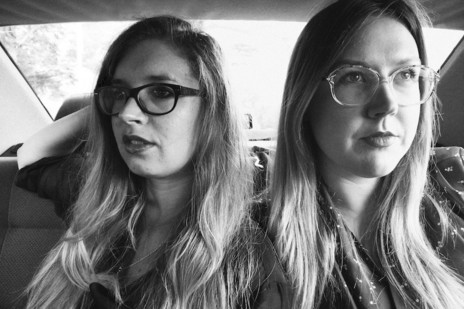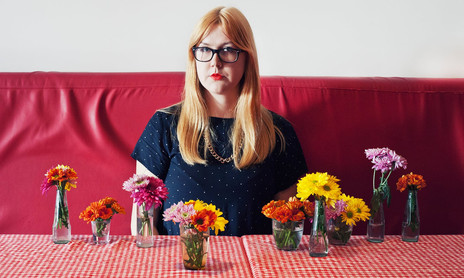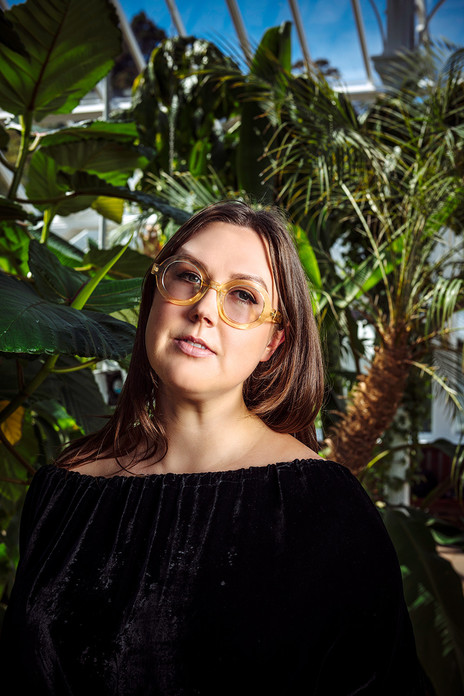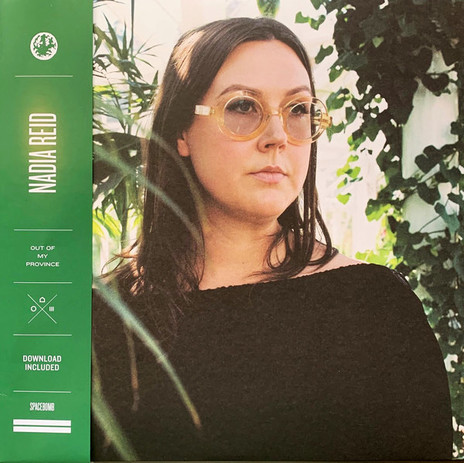The festival was also where she met up with an old childhood friend, Hannah Harding – aka Aldous Harding – as Reid explains:
“We became really connected over that summer. There was a moment when we were in the forest and she demanded I sing her a song. I did ‘What’s Up’ by 4 Non Blondes because I’d been learning it, then I said ‘now you have to sing me a song.’ She sang an a cappella version of ‘Angel From Montgomery’ from John Prine, then she taught me that one. So most of that summer I was learning covers on guitar.”
Reid began attending gigs at legendary Dunedin all-age venue Arc Cafe, where she caught touring acts including Flip Grater and Anika Moa. She and Harding both attended Logan Park High School, where they were encouraged by head of music John Dodd. The pair began writing songs together and entered Smokefree RockQuest as a trio with a drummer friend. Reid took part in the event three times in all and won the award for best female musician on one occasion.
Reid’s mother, Karin, encouraged her interest in music and provided an insight into the industry through her own work – she managed local act Tono and the Finance Company featuring a young Anthonie Tonnon, whose work ethic Reid found very inspiring.
Getting Started in Christchurch
After school, Reid became interested in the burgeoning music scene in Christchurch and decided to move there, buoyed by the fact that her friend Harding was also relocating:
“Hannah is from Geraldine and she was in Christchurch playing with The Eastern. Then I met a guy called Tim Moore because I opened for his band, Von Klap. Adam from The Eastern was there too. I remember meeting Marlon [Williams] for the first time at a party and then Delaney [Davidson]. There was just this whole movement taking place at that time.”
Reid, who began busking back in Dunedin, now found that she could make $150 from a five-hour stint in Christchurch, which was a decent amount of money for her at that time. Tim Moore ran the bar/venue Goodbye Blue Monday and encouraged Reid to play more shows, eventually joining her live band, alongside Simon Gregory (guitar) and Mike Fordham (drums, cello).
When it came time to record some tracks, Ben Edwards was recommended to Reid by Marlon Williams and his fellow musicians in The Unfaithful Ways; they had recorded their debut album at his studio, The Sitting Room. She didn’t have money to pay for the recording, but Edwards was happy to work on the project and then work out the financial details later.
in 2011 Reid’s song ‘Rise and Fall’ was used for a documentary about the Christchurch earthquakes.
The resulting five song EP, Letters I Wrote and Never Sent (2011) was released through a small local label, Gold Sounds. Reid would later come to feel that vocals on these tracks were “muddy and low” so it’s no longer available online. However, the song ‘Rise and Fall’ was used for a documentary about the Christchurch earthquakes, Gerard Smyth’s When A City Falls, and the lyrics took on a new poignance in this context – despite not being written about the disaster originally.
New city, new band, new album
Nadia Reid moved to Auckland in 2012 and worked hard to build a live audience. For example, her 2012 tour with Flora Knight (The Eastern) saw her playing at 15 venues across the country and the following year she did a 13-date tour organised by Luckless (Ivy Rossiter). As Reid recalls: “I really liked visiting all those little towns and doing odd shows. It was really good for my development.”
Reid also recorded solo demos with producer-engineer David Parker at his Little Monster Studios in Oratia. These were posted to Bandcamp and received a good response, but Reid eventually decided to form a new band to expand her sound. This led her to meet of three longtime collaborators.
“I knew Joe McCallum [drummer] from Christchurch. When I moved to Auckland, I told Joe I needed a guitar teacher. He said, ‘I know a guy who lives in Auckland who I went to jazz school with, his name’s Sam [Taylor].’ The lesson never happened, but when I needed a guitarist for a gig in Taranaki we brought in Sam. I was already playing with Richie Pickard [bassist], because he moved here at a similar time. All three of them knew each other from jazz school actually – in fact, Richie’s dad [Neill] was the one who started the jazz school in Christchurch in the first place!”
By the time it came to record an album, Reid had moved to Wellington, but she again booked 10 days of studio time at Ben Edwards’ studio, The Sitting Room, in Lyttelton and brought together Taylor, McCallum, and Pickard for the sessions. The recording was supported by 128 people who gave money via crowdfunding website Pledgeme, with the promise of an album in the mail when it was finished.
This time Reid’s vocals were crystal clear, allowing her poetic, evocative lyrics to ring through. Listen to Formation, Look for the Signs (2014) announced her arrival from the first line – “when I hit the ground in all my glory / I will know where I have come from” – and built from the gentle strum of an acoustic guitar through to the full bandwidth noise of a rock band (on tracks like ‘Reaching Through’ and the fuzzed-out rework of ‘Holy Low’ titled ‘Holy Loud’).
However upon its initial release the album didn't reach beyond her core audience. In fact, she hadn’t been able to find a label to release it until she had a chance meeting with music promoter, Matthew Crawley.
“I was walking past Matt’s bar, Golden Dawn, one afternoon and he was standing outside. I told him I was releasing my album next week. He asked what label it would be on and I told him it was going to be self-released. He said, ‘send me the album right now and give me a couple of days.’ So I forwarded him the album and that’s how I ended up getting a deal with Spunk Records, which was pretty exciting at the time and helped kickstart everything.”
The Australian label had already released work by Tiny Ruins and Aldous Harding, and owner Aaron Curnow later admitted that he had little interest in signing another New Zealand act at that time, but was so blown away by Reid’s album that he knew he couldn’t pass it up. This led to a few short tours of Australia and pushed her music further out into the world, giving it new life.
A year after it was originally released, Reid’s album finally got its due.
Small indie label Scissor Tail Records then put it out in the US and NPR featured ‘Call The Days’ in their Songs We Love section in September 2014. Meanwhile, UK publicist Will Lawrence found the album on Bandcamp and offered to represent Reid. What’s more, he helped arrange a deal with Melodic Records to get the album out in the UK since he happened to share an office with label founder, David Cooper.
At the tail end of 2015 – a year after it had originally been released – the album finally got its due. There were four-star reviews in The Observer, Mojo, Uncut, and Guardian. Pitchfork was similarly positive, though Reid disagreed with the reviewer that her view on love was “hopeless”. Billboard magazine went one better by headlining their piece about her music: “Nadia Reid, Otherworldly Voice of New Zealand, Is Saving Folk Music.”
The UK and Europe beckon
In mid-2016, Nadia Reid and Sam Taylor toured the UK and Europe, which included a slot at the Great Escape Festival at Brighton and Hove. Reid was excited to be taking her music overseas:
“The first UK tour was incredible. I [hadn’t] been outside Australasia since I was a child. Our London show was to around 250 people, but that was a really unforgettable show for me. There was no pressure and nothing to compare it to. I was just blindly enjoying the moment.”
She had already written the majority of the songs for her next album, so returned to Ben Edwards’s studio in Lyttelton to put them down using her same live band. Meanwhile, Reid had been focused on finding a plan B if her music career didn’t pan out, and had moved back to Dunedin to study English at Otago University (with the idea of becoming a teacher). However, this idea gradually fell by the wayside as the demands of her music career made studying impossible.
Reid and Taylor embarked on a second tour of UK/Europe in January 2017, so she could lay the groundwork for the release of her next album. This time she would work with Will Lawrence’s own label, Basin Rock Records, which was a smaller boutique label with more of a distinct sound (in comparison to the broad range of artists on Melodic) and Reid enjoyed being in close company with acts such as Julie Byrne.
Preservation (2017) came out in March and showed the growing cohesiveness of her band, as well as a new directness in Reid’s songwriting. The theme of the album (hinted at in the title) was around taking one’s place in the world – not only because Reid had just come out of a long term relationship prior to writing the songs, but also her feeling of being always on the move and having to struggle to survive as a creative person.
Her ex-boyfriend may not have enjoyed being named in the song ‘Richard’ but it was a sharp reflection on love turned cold (“Richard liked the sound of his own voice / By the kitchen in the mirror / It extracted all of our teeth / Filled the sink with blood”). Reid was nominated for an APRA Silver Scroll Award for the song; one of the other nominees was her old friend Aldous Harding but both were eclipsed by Lorde.
Preservation received a run of four-star reviews in influential publications such as Allmusic, Line of Best Fit, The Independent, and Uncut, while Mojo wrote a full-page article on the album’s release. The Guardian captured the general sentiment saying that she had “delicately but decidedly upped the ante” and picked out a number of the songs as “perfectly crafted statements from a blossoming talent.”
Reid accustomed herself to the new realities of being an
in-demand artist.
However, it would be a year of highs and lows as Reid accustomed herself to the new realities of being an in-demand artist. The first road bump was the Auckland album launch gig in April, which saw Reid losing her voice after just a few songs (she’d been in A&E just a few hours earlier). Reid says the memory of that show stayed with her long after: “Not to be too dramatic, but I was certainly a little traumatised by losing my voice like that. I gained anxiety around that, which I didn’t use to have.”
Her next tour would also be demanding given that it stretched over two-and-a-half months. Just prior to the Green Man Festival in Wales, Reid was again getting over an illness and feared that her voice might again give out on her, but instead it turned out to be a magical gig.
Yet there were other points on the road when Reid felt like packing it in, especially since the tour had taken her away from a new relationship back home. Each show would bring attention and praise, but also a drop in mood afterward as Reid and Taylor sought out their accommodation for the night then moved on to the next town. Having a tour manager was a mixed blessing since he seemed to be going through his own personal crisis at the time. In Oslo, Reid even considered cancelling the rest of the dates, but Taylor helped talk her around.
The tour was topped off by a performance that had been dangled as a possibility for weeks – a slot on the television show Later with Jools Holland. It was an “unforgettable experience” for Reid and there was still one more crowning achievement to come for the year. In its year-end list of top albums, Mojo put Preservation in second place.
The Life of a Travelling Artist
Reid’s next exciting opportunity overseas was a result of her fine performance at the Green Man Festival. Among those in the crowd she had won over was Ben Baldwin from Spacebomb (a well-respected Virginia label known for its folk and indie rock releases). This had led to a phone call with label owner, Matthew E White, who encouraged Reid to record at Spacebomb’s studio in Virginia. There was no assurance that this would lead to a record deal with the label, but it would give her access to the creative hub that forged the label’s success.
Reid took up the offer and in 2018 and Taylor left for the US to record her third album.
“I was so grateful to have Sam with me. It was an amazing experience. It felt like a privileged position to be in, but I also knew that I deserved to be there ... The drummer [Brian Wolfe] had worked with Sharon Jones and Sufjan Stevens, and the keyboard player [Daniel Clarke] had worked with K D Lang. The studio was the most amazing thing you’ve ever seen. There was an engineer and an engineer’s assistant, plus two producers. I did sometimes get the sense of imposter syndrome, but I just tried not to think about it.”
Reid was particularly impressed by producer Trey Pollard, who kept the focus on the vocals and the song itself. When it suited the song, he added strings (‘Get The Devil Out’) and horn parts (‘Oh Canada’) to expand Reid’s songs into full spectrum arrangements. The owners of Spacebomb were convinced they had to work with her and so the album was kept on hold while they negotiated a four-album deal with Reid.
Her 2020 album ‘Out of My Province’ followed its predecessors in becoming an immediate critical success.
Their confidence in the album was rewarded when Out of My Province (2020) followed its predecessors in becoming an immediate critical success: Mojo named it their album of the month, Uncut gave it four stars, and Billboard premiered its third single ‘Oh Canada’ on their website.
The title of Out of my Province was taken from a Janet Frame quote. In an interview she’d been asked how it felt being one of the 20th Century’s best novelists and she’d replied “That question doesn’t reach me. It’s out of my province.” By using this title, Reid shows her own desire to keep her songwriting separate from the world of reviews and the music business. The geographical reference (“province”) also suits the album since the songs make constant reference to the travelling life of a musician, with Reid expressing comfort in her chosen path.
There were new challenges that came along with her new level of success, since the livelihoods of multiple people now depended on each show, as well as the mortgage on Reid’s property in Port Chalmers. However, she found it a great relief to see how far she’d come since her first album.
“I didn’t think of myself as a musician back then. I was so nervous. I was nervous to play with people; I was nervous to sing. I was unsure of a lot of things. I only learnt that I could do it by doing it, then getting feedback from my audience … I think I was a lot sadder back then. I was more bitter. I couldn’t have written these songs five years ago. There’s this peace and wisdom and joy in my life now.”
--
The Covid-19 era led to Reid to find a new approach to touring. In between lockdowns, she undertook the Reid and Ruins national tour with Tiny Ruins which saw them playing opera houses and town halls rather than bar venues. Reid then settled down in Ōtepoti Dunedin to raise her new-born baby, though managed to fit her songwriting around parenting duties.
Reid was determined that motherhood would run alongside her career as a musician, rather than the demands of either role overshadowing the other. She continued to tour as usual and took the baby along with her, finding ways to adapt as she went. She did some recording sessions at Chicks Hotel in Port Chalmers before relocating to Tom Healy’s studio in Auckland.
In 2023, Reid needed some space from the small pond of the New Zealand music scene. As she told RNZ, she sought the anonymity of a big city, where she could “go to a dance class where nobody knows where I am.” She moved to Manchester (UK) with her partner and two children, taking advantage of the British citizenship by descent she qualified for through her mother.
The massive changes of the previous few years were evident on her next album, Enter Now Brightness (2025), in which she reveals a new appreciation for life and leaving some of her youthful troubles behind her. She also wanted to keep pushing beyond the “folk” tag – the first single ‘Changed Unchained’ has upfront drums and slabs of distorted guitar. This was followed by ‘Baby Bright’ which pairs piano with lush backing vocals by Ben Lemi (TrinityRoots, Vera Ellen) and a breathy trumpet line by Finn Scholes (Carnivorous Plant Society). The lyrics speak of the tenderness shown by a mother to a child, and it became a million streamer.
Reid tours the UK and Europe regularly, sometimes with a full band and other times as a duo with Sam Taylor, even booking a slot on the acoustic stage at Glastonbury. The joy she found as a parent seeped into her work, with her children making cameos in her music videos and tour photos. A new brightness came through in her music, as she sings on ‘Woman Apart’: “I'm grateful for the grace that is mine / I'm grateful for the light as it shines.”
